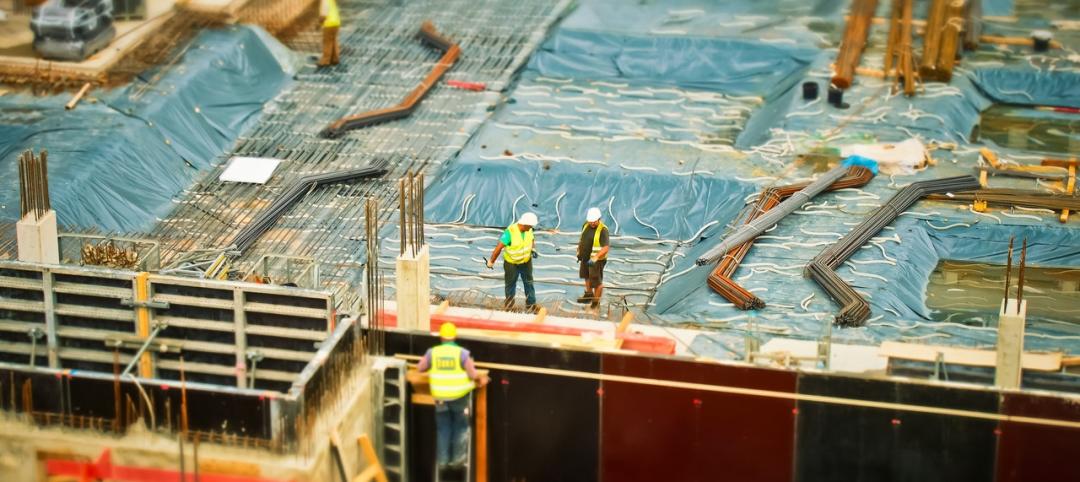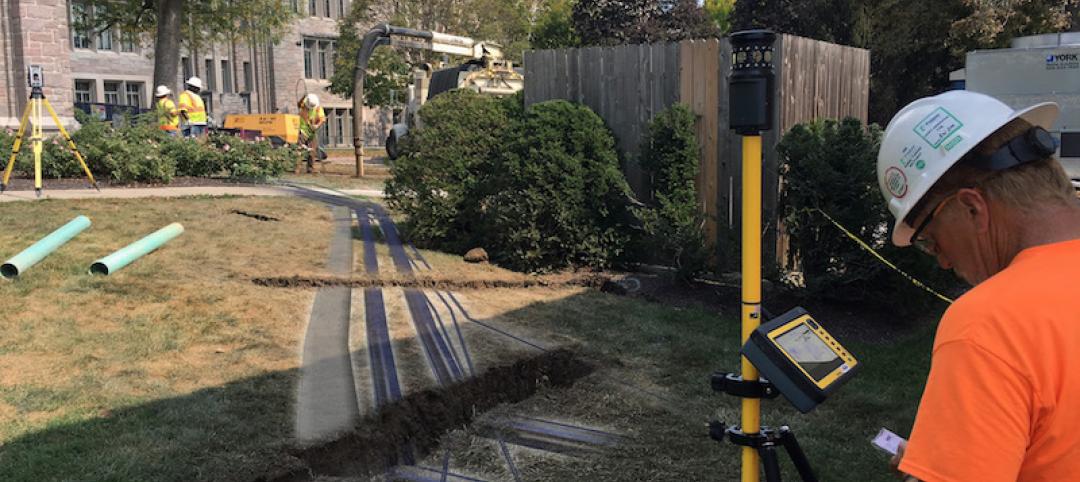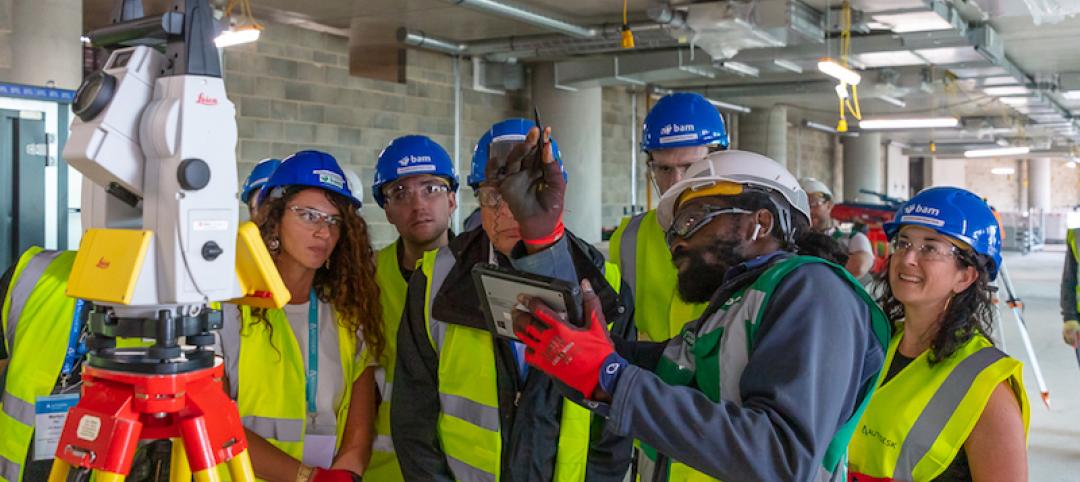BuiltWorlds, a member network dedicated to inspiring and advancing innovation in the AEC industry, has released its 2024 Tools, Equipment, and Robotics Benchmarking Report, an annual report that presents user survey data on category-specific technology adoption and usage. The report revealed that while the industry has been slow to adopt robotic solutions en masse, there has been considerable progress in certain areas, with one provider in particular seemingly pulling ahead as the preferred provider.
“The integration of advanced tools, equipment, and robotics represents a significant leap toward modernizing and streamlining operations within the AEC industry,” wrote BuiltWorlds Research Analyst Audrey Lynch, who authored the report. “This year, we saw the highest levels of adoption in monitoring robotics and service/labor robotics, two of the four main categories we've identified in construction robotics”
Nearly two-thirds of contractors surveyed, who cited use of robotics on jobsites, are either using monitoring and/or service/labor robotics. Thirty-five percent admitted to using autonomous heavy equipment, and a paltry 6% prefabrication robotics.
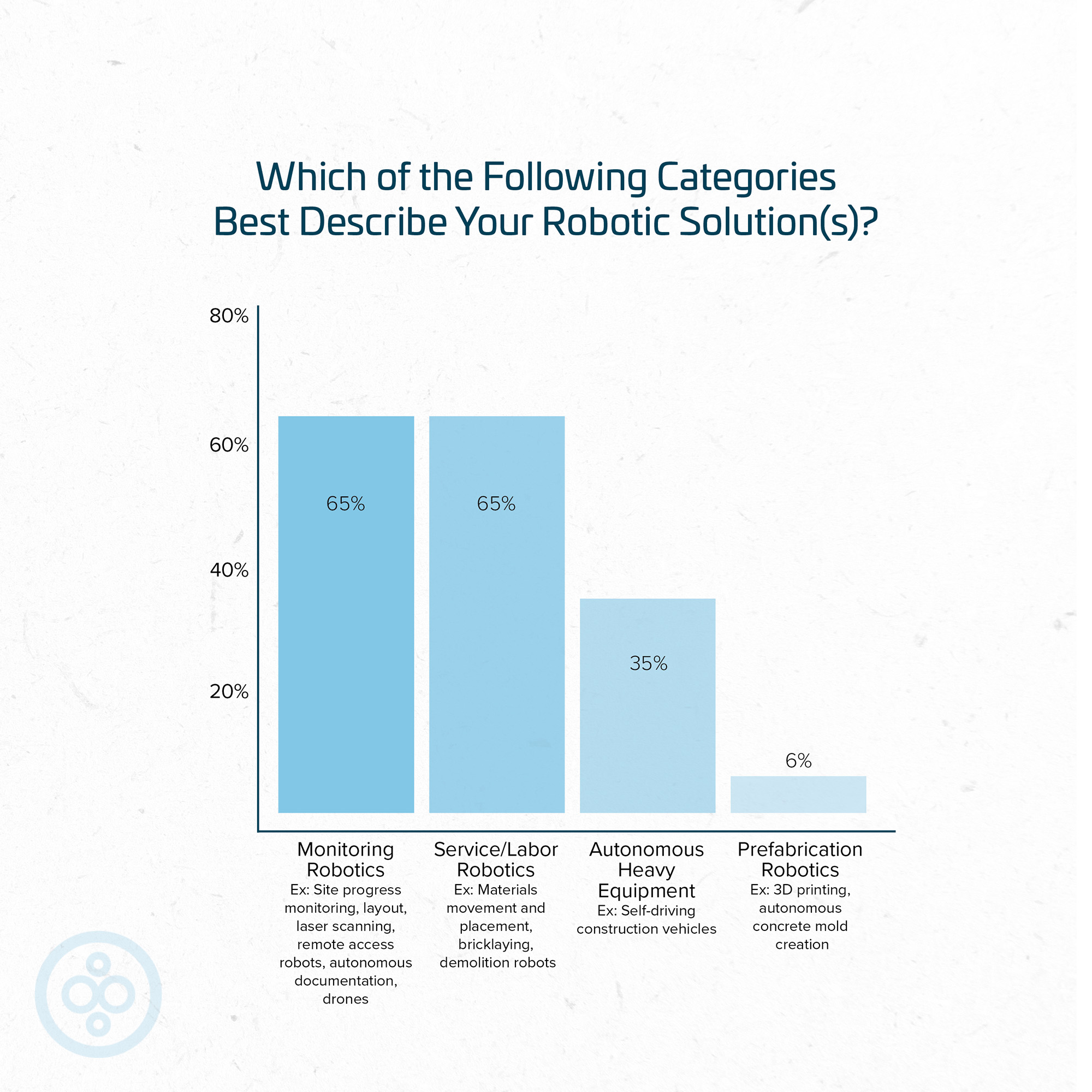
“There is a confluence of factors that are all working in tandem to drive increased utilization of robotics in the construction industry. The primary push forward is an increasingly prominent labor shortage in the industry,” said Tyler Sewall, Senior Director of Research for BuiltWorlds. He added, “Meanwhile, the typical barriers to adoption are slowly waning, leading to an environment more receptive to robotic solutions. The increased use of BIM, improved operability and accuracy, improved data collection and utilization, and an industry more culturally inclined to new technologies have all yielded material increases in the use of robotics.”
A Leading Provider in Dusty Robotics
Among the multiple robotic technology solutions providers named in the report, one provider stood out as both most implemented as well as highest rated: Dusty Robotics, a company that builds robots to help in laying out jobsites.
“Dusty Robotics consistently outperforms the industry average across all evaluated criteria, indicating its strong market position,” Lynch wrote. “With top ratings in adoption/utilization, ease of use, coordination with site activities, and data integration, the solution demonstrates its effectiveness and user-friendliness. It also excels in installation/performance speed and quality (tied with Civ Robotics), highlighting its reliability and efficiency.”
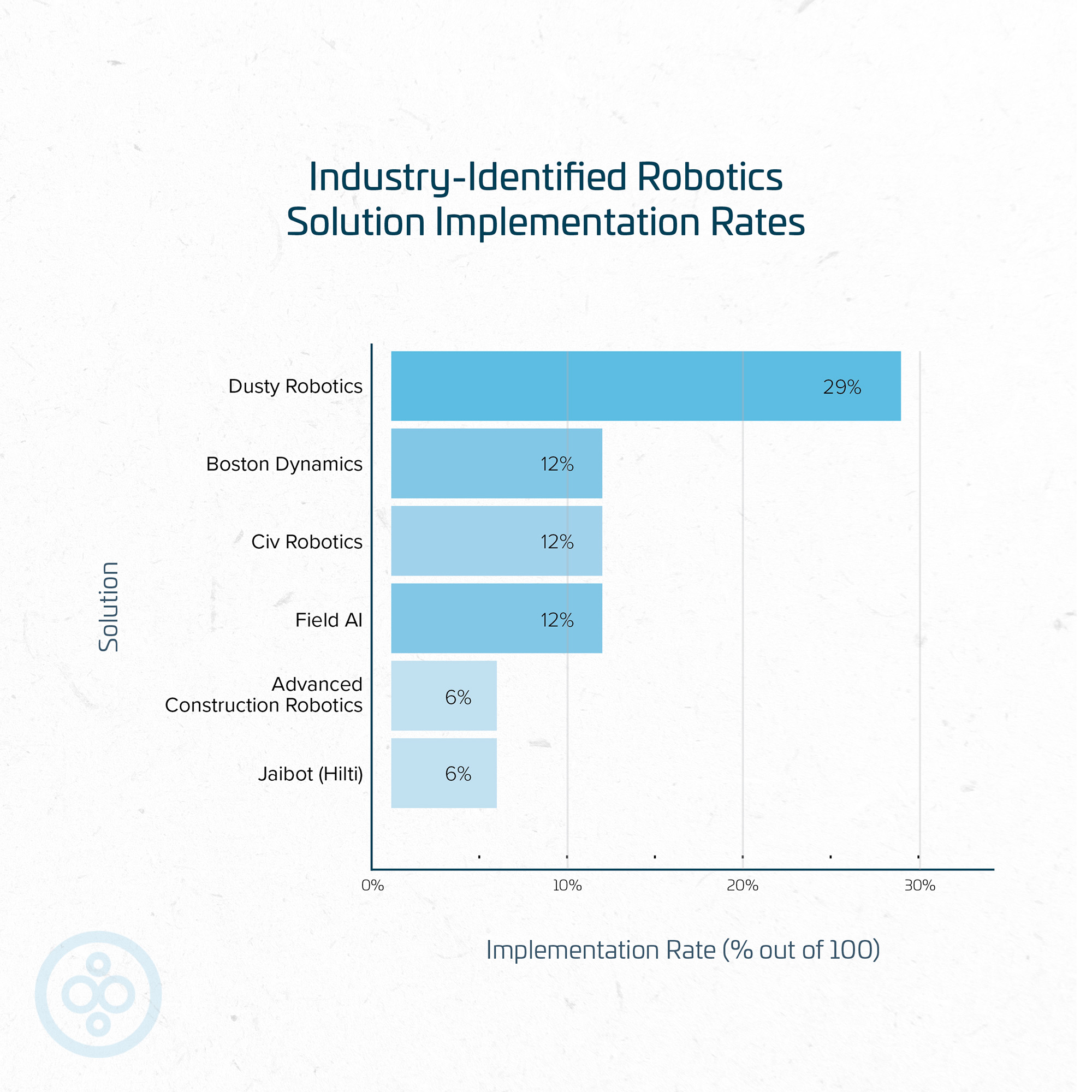
Why ‘Better Adoption’ Isn’t ‘Mass Adoption’
But while this year’s report shows wider scale adoption than years previous, particularly in the areas of service/labor and monitoring robotics, the industry has yet to embrace robotics into its mainstream.
“As much as the case for robotics continues to grow,” Sewall said, “there are, frankly, still so many reasons why robotics adoption isn't widespread, and may not be for a while.”
For one, most robotic solutions, he explained, require some variety of building model in order to operate.
“BIM, while well-adopted in some markets, is significantly underutilized in large portions of the industry.”
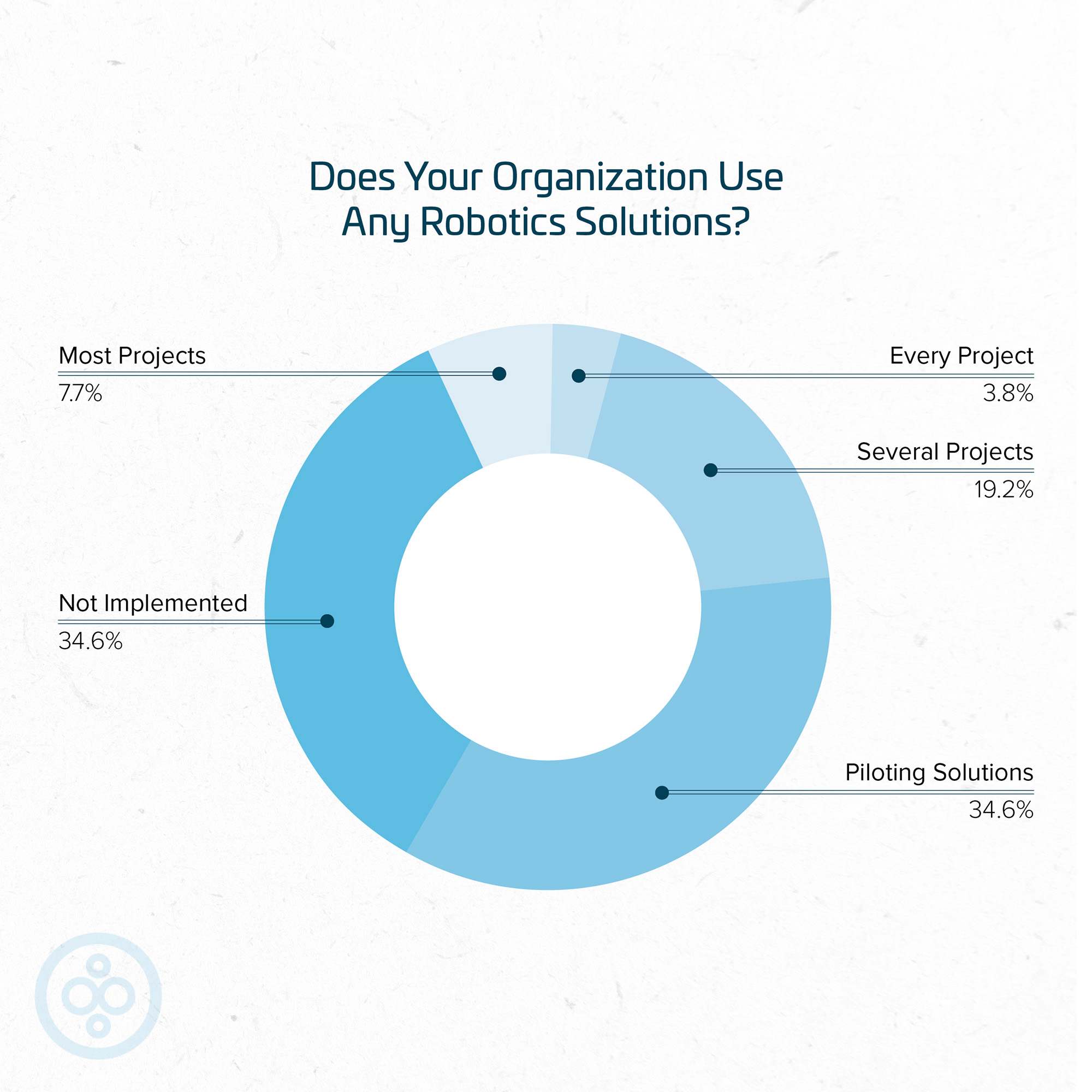
Another reason, Sewall shared, is that robotics, like any new technology, comes with a certain amount of risk—which is a problem in a traditionally risk averse industry.
“With layout robots, for instance, the second question is always, ‘Who owns the layout,’” he explained. “If the general contractor dictates how layout will be done, does that change the owner of the risk?”
Finally, and most obviously, is the cost.
“The up-front costs of robotic solutions are expensive,” Sewall said. “While larger companies can support these costs, many small- and mid-sized contractors simply cannot support any additional spend.”
Still, while there remain significant barriers to mainstream adoption of construction robotics, the data seems to indicate a slow acceptance and utilization of a technology that represents a massive boost to safety, efficiency, and productivity.
Related Stories
AEC Tech | Jul 29, 2019
2019 Bluebeam Extreme Conference: Peer-to-Peer Learning at Scale
XCON 2019 to focus on collaborative partnerships and what works in digital construction
Multifamily Housing | Jul 23, 2019
Is prefab in your future?
The most important benefit of offsite construction, when done right, is reliability.
AEC Tech | Jul 15, 2019
Lack of standards hampers development of exoskeleton industry
Guidelines, common terminology, and testing methodology are needed, says expert.
AEC Tech | Jul 15, 2019
Investors eye startups focused on automating construction
Investors could reap big payoffs in an industry that experts say is ready for automation.
AEC Tech | Jul 12, 2019
A new Dodge-Viewpoint report gauges how well contractors gather and use jobsite data
Information is power, but are contractors collecting what they need to make better decisions?
| Jul 11, 2019
Pepper Construction is using 3D models to help identify underground utilities on jobsites
Overlaying new installs and site surveys add precision to the construction process.
AEC Tech | Jul 10, 2019
Blue Collar Labs launches Builder’s Almanac, an online construction technology evaluation platform
The free online resource aims to eliminate subjective bias from the contech software evaluation process.
AEC Tech | Jul 2, 2019
Living in a cloud: What nanotech means for architecture and the built environment
Could there come a time when buildings will become less about bricks and mortar and feel more like mists or fogs?
AEC Tech | Jun 28, 2019
In London, Autodesk homes in on construction management
The software goliath sounds the alarm about the urgent need for productivity improvements to address unbridled urbanization.
Giants 400 | Jun 26, 2019
How are the AEC Giants faring in the tech arms race?
About half (42%) say their firm is “on par” with their most-direct AEC competitors.




